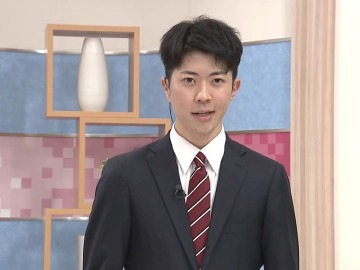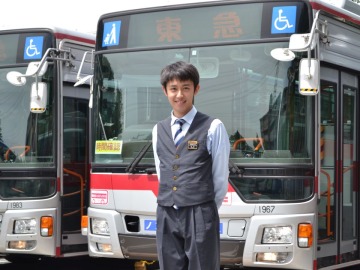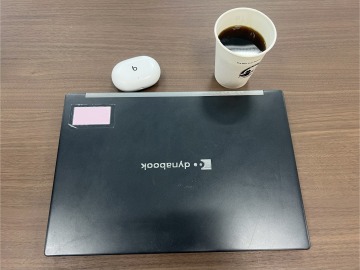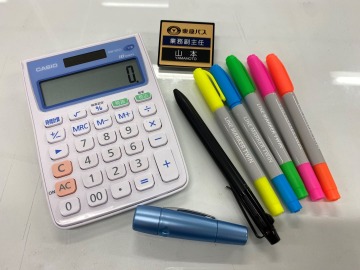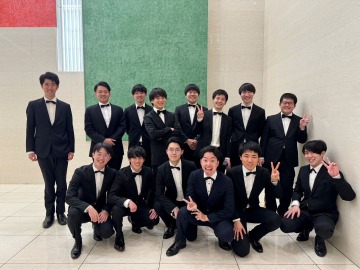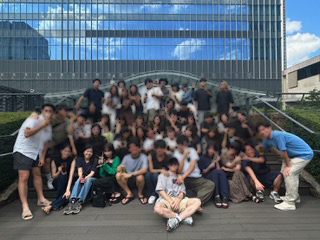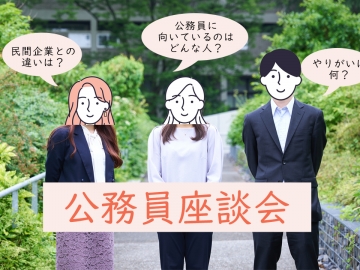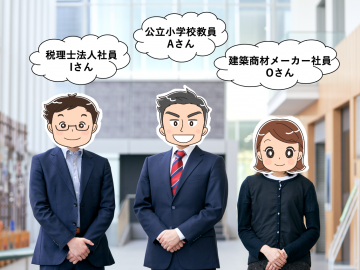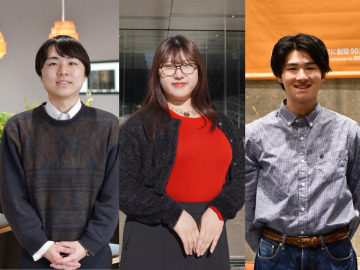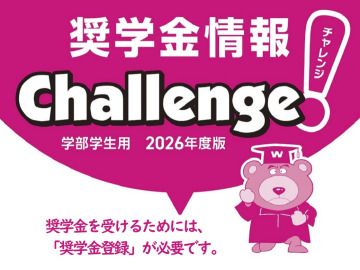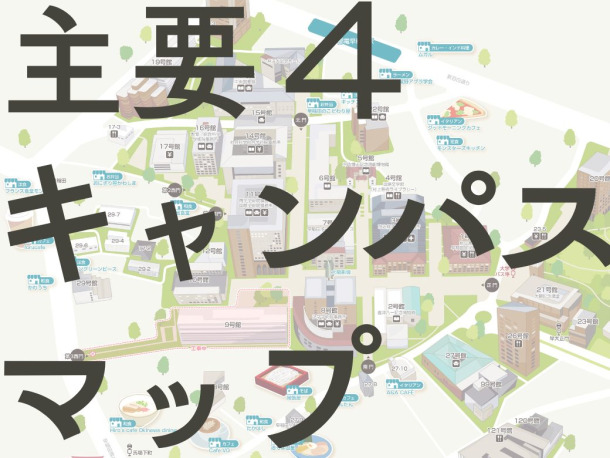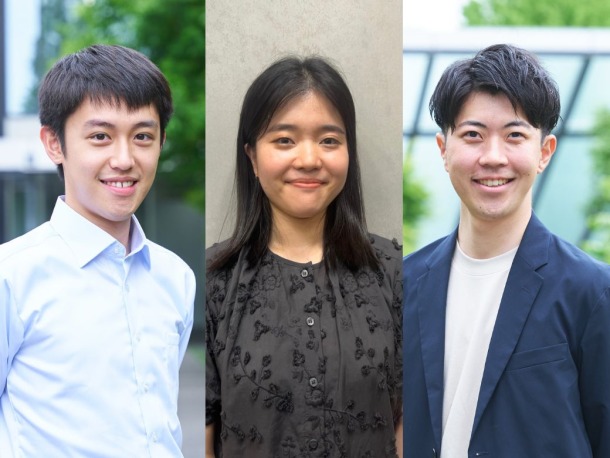
(左から)山本さん、勝部さん、長谷川さん
就活はいつから始める? 社会人は学生とどう違う? 経験したことのない社会人生活や仕事についてリアルに想像するのは難しく、なかなかピンとこない人も多いのでは。そこで今回は元SJC学生スタッフ(『早稲田ウィークリー』学生スタッフ)で校友(卒業生)の3名に集まっていただき、就活や社会人生活についての座談会を実施しました。地元へのUターンで憧れの職業に就いた先輩、幼いころからの“好き”を仕事にした先輩、大手でダイナミックな仕事を経験したいと考えた先輩と、まさに三者三様! 業界や会社はどのように選んだのか、実際働いてみてどうなのかなど、今だから言える本音を話していただきました。
INDEX
▼テレビ、交通、広告…活躍する業界は人それぞれ。就活の現実や今の会社を選んだ理由とは?
▼こんなに違う! 学生時代と社会人生活のギャップ 先輩たちのリアルな日常
▼少しでも興味があることは学生の間に経験しておくべき! 先輩から早大生へのエール
▼キャリアや就活を考えたら、キャリアセンターを活用しよう!
学生生活は今を楽しむべき! 社会人はオン・オフのメリハリが大切
・長谷川 拓海(はせがわ・たくみ)さん 地方テレビ局勤務 2023年 教育学部卒業
・山本 皓大(やまもと・ひろと)さん バス会社勤務 2023年 政治経済学部卒業
・勝部 千穂(かつべ・ちほ)さん 広告会社勤務 2023年 社会科学部卒業
テレビ、交通、広告…活躍する業界は人それぞれ。就活の現実や今の会社を選んだ理由とは?
まずは、現在の仕事内容について教えてください。
長谷川さん:私は地元の新潟に戻り、テレビ局の報道記者として働いています。県内で起きた出来事、例えば事件や事故、災害、季節の話題などを取材し、原稿を書いて放送まで立ち合う一通りの業務を行っています。
山本さん:私は東京・神奈川を営業エリアとするバス会社で総合職として勤務しています。現在は営業所での運行管理と乗務員の勤怠管理が主な業務です。運行管理では路線が遅れたときなどに運行状況を調整し、勤怠管理では営業所に所属する乗務員230名ほどの各月のシフトを組み、乗務員が急に休んだ場合にはシフト調整を行っています。
勝部さん:東京の広告会社に勤務しています。TVCMなどの制作領域や、長谷川さんが勤務しているテレビ局のようなメディアの方とも関係性を築いて一緒にお仕事をしています。
写真左:2024年2月、ニュース内で記者解説をする長谷川さん
写真右:2024年5月、営業所の車庫にて。営業所では制服で勤務しているという山本さん
就活はいつ頃から始めて、どのように進めていきましたか。
長谷川さん:就活を意識し始めたのは大学3年生の7月頃からです。周りも3年生の夏にインターンに行く人が増え、本格的に動き出す人が多かったですね。私自身も地元のテレビ局でインターンを経験して、幸い1社目で内定をいただきました。
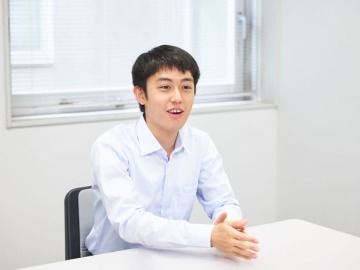
好きなことを仕事にする方がモチベーションが上がると考えた、と話す山本さん。学生スタッフのときにはものづくり工房を体験リポートしたことも
山本さん:同じく3年生の夏ごろですね。インターンは今の会社を含め交通系企業で数社経験しましたが、長期ではなく会社説明会や職場体験にいくつか参加した程度です。長谷川さんと同じで、かなり職種を絞って就活していたのもあり、ぶれずに落ち着いて進め、内定を得ることができました。
勝部さん:えー! うらやましい。私も始めた時期は同じですが、最初は明確な就活の軸が決まってなくて、いろいろな業界を見ていました。どの会社が良いのかも分からなくて、会社説明会にも片っ端から行き、15社から20社くらいは受けたと思います。受けていくうちに、話が合う面接官がいる業界や特に気になる会社が見えてきて、自分に合う会社を絞っていくことができました。落ちたときは「自分には合わなかったんだ」と思うことで気持ちを切り替え、他を探すことができたんです。
現在の仕事や会社を選んだきっかけや経緯を教えてください。
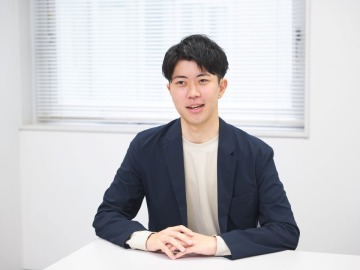
学生スタッフのときには企業訪問リポートをしたこともある長谷川さん。実は小学生の頃から今の職業に憧れていた、と打ち明けてくれた
長谷川さん:映像を通じて、地元の現状や課題を伝え、少しでもより良い社会へつなげられる仕事に就きたかったのが理由です。特にこの会社に決めたのは、ワークライフバランスを重視していることや、比較的若手でもチャレンジしやすい雰囲気があると感じたから。実際に1年目からニュースのコーナーを担当させてもらえていて、とても恵まれていると思います。
山本さん:昔からバスや鉄道が好きだったこともあって交通業界、その中でも自宅の周りを走っていて1番愛着のあるバス会社を選びました。総合職を志望したのは、キャリアを積みながらさまざまなことにチャレンジしたいと考えたからです。
勝部さん:私は二人のように、最初から明確な軸があったわけではなかったです。ただ、学生時代に演劇をやっていて表現することは好きでしたし、小さい頃海外で生活していたこともあって、クリエーティブかつグローバルな仕事に携わりたいという思いも持っていました。そこでいろいろな業界や会社を調べたり説明会に参加したりして、商社と迷ったんですが、働いている人の雰囲気や会社のカルチャーなどを見て最終的に広告業界を選びました。
給料や福利厚生についてはどうですか?
長谷川さん:東京で勤務するのと変わらない給与をいただけています。福利厚生については一般的だと思いますが、休みが取りやすいのはうれしいですね。通常の休日と有給休暇をうまく組み合わせると長期の連休を取ることもできます。
山本さん:給与は一般的な額で特別高いとは思いませんが、年齢に応じて基本給がしっかり上がっていくのはうれしいです。ボーナスもしっかりもらえます。グループ会社だからか福利厚生はすごく充実していて、例えば系列のホテルに宿泊する場合は1人あたり一泊4,000円の補助が出るんです。
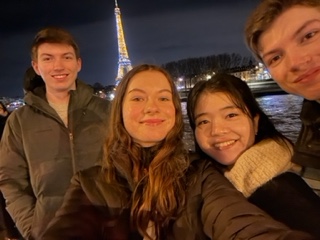
会社の休暇制度を使って訪れたパリで、学生時の留学で仲良くしていた友達と再会した際の一枚(勝部さんは右から2番目)。当時、留学の様子をレポートした記事はこちら
勝部さん:私は旅行好きなので、それはすごくうらやましい! 私の会社には特徴的な休暇制度があります。長谷川さんの会社と近いのですが、1年に2回好きなときに5連休が取れる制度です。土日と組み合わせると9連休になるので、その制度を使って海外に旅行しています。先日はフランスにいる双子の妹に会いに行きました。
こんなに違う! 学生時代と社会人生活のギャップ 先輩たちのリアルな日常
社会人生活で学生時代との違いを感じることはありますか。
山本さん:この会社に入社したことで、それまで当たり前に思っていたバスの運行の陰にこんなにも多くの人たちが働いていることを実感しました。また、バスの運行は朝早くから夜遅くまであるため、泊まりで勤務することもあります。この点は入社前にちょっと気掛かりだったのですが、慣れれば問題なかったです。それと入社前は体育会系の会社かと思って身構えていたのですが、実際はそんなこともなくて、自分にとってすごく居心地が良い環境です。休日に会社の人と遊びに行くこともあり、同じ鉄道好きの人と一緒に鉄道模型を走らせたり、ゴルフをしたりしています。
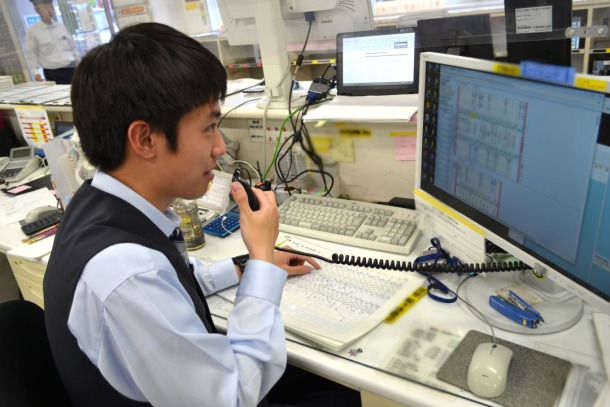
バスの現在地やバス停間の所要時間が表示される「バスナビ」を見ながら、無線を用いて運行調整を行う様子。ダイヤグラムに書き込みをしながら行うこともあるそう
長谷川さん:学生時代との違いでいえば、スケジュールが流動的なところでしょうか。出勤時間は、その日の取材予定に合わせるため日によって異なります。ただ、毎日違う内容の仕事ができるのは刺激的で楽しいので、そこに不満はないですね。それよりもテレビ局のスピード感にはびっくりしました。その日に取材した内容をその日の夕方のニュースでオンエアするので、スケジュールがものすごくタイトなんです。取材して、原稿を書いて、編集して、放送するまで半日しかありません。事件や事故を取材する場合はアポ取りすら当日に行うことも多いです。時間の流れ方が学生時代とは全然違います。
勝部さん:広告会社は激務のイメージが強いかもしれません。確かに繁忙期は大変ですが、好きなことを仕事にできているので、その分達成感を感じる場面も多いです。ただ生活は学生時代とは大きく変わりました。忙しい日は本当に一瞬で1日が過ぎていくので、休日をしっかり充実させたいと考えるようになりました。
学生時代に学んだことは、今の仕事に生きていると思いますか。
長谷川さん:学生時代、『早稲田ウィークリー』で取材や執筆をした経験は記者業務に生かせていますし、ゼミで専攻していたデータ分析も物事の背景を考えるのに役立っています。他にも先日の能登半島地震の取材では、大学が主催している地域連携ワークショップで石川県珠洲市に行ったときの出会いや学びが生かせました。
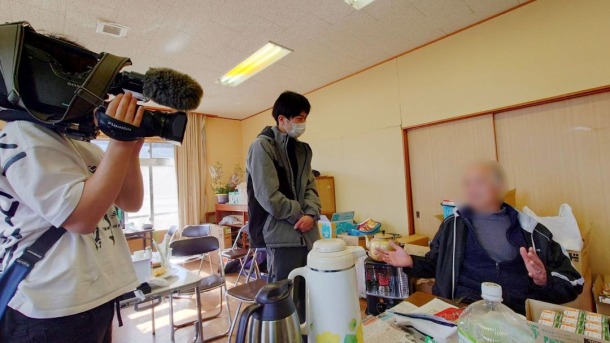
2024年2月、能登半島地震の後、石川県内の避難所で取材した際の一枚。取材は基本的に、カメラマンと2人で行動するそう
山本さん:同じです! 私も学生スタッフや学内ボランティアを通じて、大人と一緒に働く機会が得られたのは大きかったと感じています。社会人になると年上の人と関わる機会が多くなりますが、これまでの経験のおかげで物おじせずにコミュニケーションを取ることができています。
勝部さん:私も学生スタッフで得た経験は本当に生きていると思います。例えばメール一つにしても、取材の経験を積んだことで相手の目線に立って作成できるようになりました。また、仕事で英語を使う機会も多いため、在学中の留学経験も生きていると感じます。
少しでも興味があることは学生の間に経験しておくべき! 先輩から早大生へのエール
社会人生活や仕事に関して、今後の展望を教えてください。
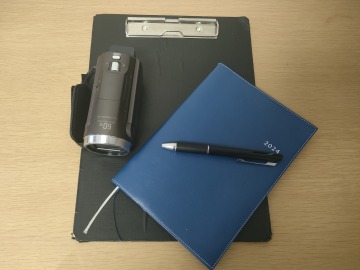
「突然の事故や火事の場合、一人で現場に駆け付け撮影することもあり、常にデジカメを持ち歩きます。また、どこでもメモがしやすいようペンとノート、バインダーも必需品です」(長谷川さん)
長谷川さん:今の仕事を続けて、ゆくゆくは自分が番組の取材、構成を担うディレクターを務めるドキュメンタリー番組を制作したいですね。その番組が全国放送されることが現在の目標の一つです。
山本さん:私は今の会社でキャリアをしっかり積んでいきたいと思っています。その一方で昔ながらの古さも残る会社なので、将来キャリアアップした際には会社を変革できるような存在になりたいですね。そのとき、今現場で働いている気持ちを忘れないようにしたいです。
勝部さん:今の会社にはクリエーティブやメディア、デジタルなどさまざまな領域があり、学ぶことがたくさんあります。まだ探っている段階ではありますが、その中で好きな領域をさらに深めていき、専門性を高めていきたいです。
写真左:「オンライン会議が多いため、PCとイヤホンとコーヒーは毎日欠かせません」(勝部さん)
写真右:「乗務員の労働時間や休息時間を計算するのに使用する電卓や、ペンや印鑑といった文房具が必須アイテムです」(山本さん)
最後に、これから社会人になる早大生にメッセージをお願いします。
長谷川さん:学生時代は自由に使える時間が人生で一番多い時期です。趣味や旅行、ボランティアなど何か少しでも気になることがあるなら、ぜひチャレンジしてほしいと思います。それがきっと今後につながってくるはずです。
山本さん:私の言いたいことは長谷川さんが全部言ってくれました(笑)。私もまさに好きなことが仕事につながったので、学生の皆さんもぜひ興味のあることは積極的にやってみてください。
勝部さん:後輩などから話を聞いていると、最近は1年生の頃から就職について考えている子が多いんです。でも、最初からそこまで考えすぎずに、自分の好きなことに時間を使っていいと思います。就活では本当に好きなことに対してどれだけ頑張ったかという点が見られていると思います。特に早稲田にはサークルを始め、ボランティアや学生スタッフの仕事、イベントなど一人一人が輝けるいろいろな機会があるので、うまく活用して経験を積んでほしいですね。
写真左:2023年11月、学生時代のサークル・グリークラブの同期とともに合唱のコンクールに出場したときの一枚(後列左端が長谷川さん)
写真右:勝部さんはプライベートでも、会社の先輩たちとビアガーデンへ行ったこともあるそう
取材・文:山田井 ユウキ
撮影:小野 奈那子
キャリアや就活を考えたら、キャリアセンターを活用しよう!
キャリアセンターでは、学部・研究科や学年にかかわらず就職活動に向けた支援や、学部1・2年生向けのキャリア支援を行っています。キャリア・就活に関する個別の相談や対象者別イベントなど、ぜひ利用してください。
■利用ガイド
https://www.waseda.jp/inst/career/students/guide/
■キャリアセンターを利用する前に
MyWaseda「キャリアコンパス」から下記の順に進路希望登録を行ってください。
①MyWasedaへログイン後「学生生活」→「キャリアコンパス」内、「企業・求人情報照会」をクリック
②初回利用時は「初期登録画面」→「学生情報登録」→「進路希望登録」の順に入力
※希望進路はいつでも変更できます。
■イベントの詳細
6月、7月は25卒向け、26卒向け、学部1・2年生向け、留学生向け、公務員志望者向けなどのイベントが盛りだくさん! 随時イベント情報を公開しますので、チェックしてください。詳細はこちらから。
【次回フォーカス予告】6月10日(月)公開「早稲田で働く人々特集」

